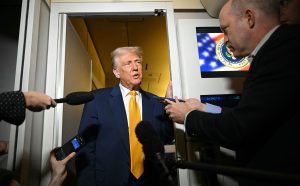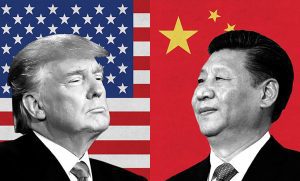Washington D.C. – The Trump Indian Oil Purchase Halt Claim has reignited discussions on global energy dynamics after the US President declared that India would sharply reduce its oil imports from Russia by the end of this year. Reiterating his earlier statements, Donald Trump claimed that New Delhi would “cut Russian oil imports by almost 60%,” reducing the figure to “about 40% of the current level” before 2026 begins. The Trump Indian Oil Purchase Halt Claim underscores his firm stance on reshaping global oil trade patterns.
Trump Doubles Down on His Statement

Speaking from the White House, the President Donald Trump made it clear he stands by his assertion. According to the Trump Indian Oil Purchase Halt Claim, he reiterated that India had assured him of a gradual reduction in its Russian oil purchases. Trump said, “India, as you know, has told me they are going to stop… it’s a process. You can’t just stop buying oil from Russia.” His statement reflects confidence in India’s willingness to align its energy policy with Washington’s expectations under the Trump Indian Oil Purchase Halt Claim narrative.
Trump’s comments come amid evolving global concerns over energy alliances, especially as tensions involving Russia continue to shape oil markets. The Trump Indian Oil Purchase Halt Claim suggests a growing US effort to reduce dependence on Russian energy sources through diplomatic influence on key partners like India.
India’s Energy Diplomacy in Focus
The Trump Indian Oil Purchase Halt Claim highlights India’s delicate balancing act between strategic autonomy and its international relationships. While India has been a major importer of discounted Russian oil since 2022, Trump’s latest remarks point toward a potential recalibration of that dependence. By citing India’s “commitment” to reduce imports, the Trump Indian Oil Purchase Halt Claim casts the country as a key player in the evolving global energy equation.
Observers note that India’s decision-making has long been guided by affordability and security rather than external pressure. Yet, the Trump Indian Oil Purchase Halt Claim implies that U.S. diplomatic persuasion may be yielding some influence over New Delhi’s trade trajectory.
Trump Draws Comparison Between India and China


In reinforcing the Trump Indian Oil Purchase Halt Claim, Trump contrasted India’s cooperative relationship with China’s more complex one. “India has been absolutely great,” he stated, while adding that “China’s case is different.” Trump elaborated that China and Russia have become closer due to past U.S. administrations’ failures, naming Biden and Obama as reasons for the alliance. Through the Trump Indian Oil Purchase Halt Claim, Trump attempted to highlight his administration’s assertive strategy in managing global power blocs.
Also Read: India US Trade Deal: Breakthrough Agreement Slashes Tariffs to 15%, says report
He added that while he hopes for friendly ties between China and Russia, he doesn’t believe such a partnership can remain stable. This geopolitical framing strengthens the context behind the Trump Indian Oil Purchase Halt Claim, positioning India as a more dependable partner in the U.S. strategic vision.
Economic Context Behind the Claim
The Trump Indian Oil Purchase Halt Claim also arrives at a time when discussions on trade tariffs between Washington and New Delhi are intensifying. Reports suggest that the U.S. may reduce tariffs on Indian exports from a steep 50% to 15-16%. Trump’s move is seen as a possible gesture of goodwill to strengthen bilateral ties, following penalties imposed earlier due to India’s energy ties with Russia. The Trump Indian Oil Purchase Halt Claim thus intersects with economic diplomacy, signaling potential shifts in U.S.-India trade dynamics.
Trump’s statement also reflects a broader attempt to project American leadership in managing oil markets, particularly as the global economy grapples with fluctuating energy prices. Analysts believe that the Trump Indian Oil Purchase Halt Claim may serve as both a diplomatic message and a campaign statement reinforcing his foreign policy credentials.
Diplomatic Calls and India’s Response


According to Trump, his latest conversation with Prime Minister Narendra Modi reaffirmed the ongoing talks on energy cooperation. He said he “spoke to Prime Minister Modi a day earlier,” implying active discussions on the issue. The Trump Indian Oil Purchase Halt Claim portrays this dialogue as evidence of strong U.S.-India engagement.
However, experts note that India has not made any formal public statement supporting or rejecting the claim. Despite Trump’s insistence, officials in New Delhi maintain that oil imports are determined by market conditions and national interests. Nonetheless, the Trump Indian Oil Purchase Halt Claim continues to attract global media attention for its diplomatic and economic implications.
Global Reactions and Geopolitical Ripples
The Trump Indian Oil Purchase Halt Claim has sparked diverse reactions globally. Supporters of the U.S. administration view the statement as a positive step toward reducing Russia’s economic leverage, while critics see it as an overstatement. Economists caution that sudden shifts in India’s oil sourcing could strain domestic supply chains.
Meanwhile, geopolitical observers argue that the Trump Indian Oil Purchase Halt Claim reinforces the growing alignment between the U.S. and India in matters of trade and security. It also reflects Trump’s effort to project leadership in global energy diplomacy ahead of his upcoming policy announcements.
A Defining Moment for U.S.-India Energy Relations
As the year-end deadline approaches, the Trump Indian Oil Purchase Halt Claim will be closely monitored for signs of actual policy movement. Whether India significantly reduces its Russian oil imports or not, Trump’s remarks have already placed energy cooperation at the center of U.S.-India ties.
If realized, the Trump Indian Oil Purchase Halt Claim could reshape global oil markets and further position India as a responsible international stakeholder. For now, Trump’s confidence in India’s actions remains a defining statement of intent, blending politics, economics, and diplomacy under one high-stakes narrative.

